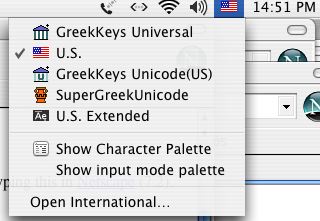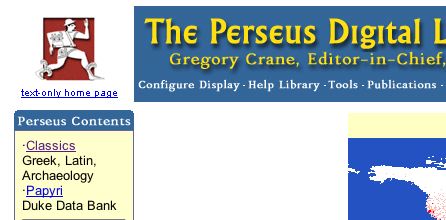Here are links to some keyboard
resources that you will need. Characters will look the same whichever
you choose! It's just a matter of where you like your theta or your
smooth breathing to live on your keyboard..
A plug for this layout: if you are the
touch-type type of typist, this is the way to go. The diacritics are
located where you don't have to stretch to get to them. EASY!
NOTE: these keyboard resources are offered free of charge for now, but
this may change. Get them now!
To add these .rsrc files to your system, use the Finder and deposit the
files in Macintosh HD: Library: Keyboard Layouts, as in this picture:
(There are other 'Library' directories, such as in your home directory,
but that prevents somebody else working on your computer from using
them)




